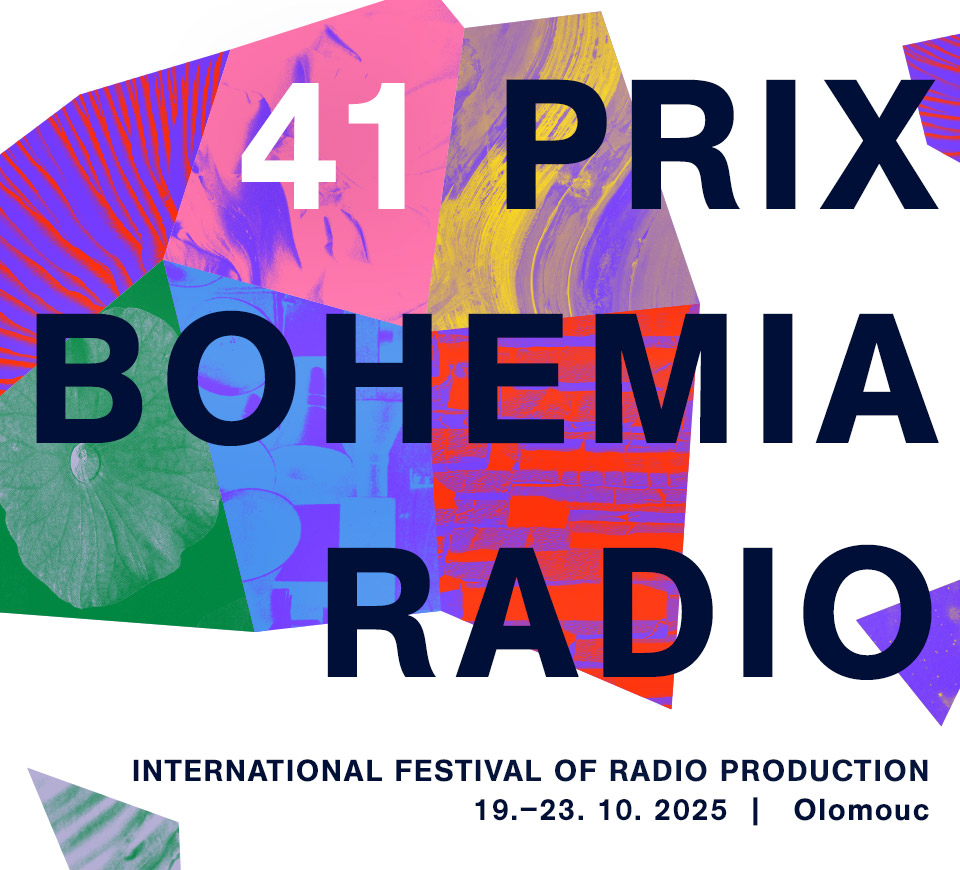The discussion for contemporary multimedia at Prix Bohemia Radio showed how important it is to interact with listeners
The festival’s last day was about presenting and discussing projects in the Multimedia category. This year Dita Malečková, Jan Misák, Petr Uchytil, Bohuslav Stránský, and Matěj Hájek sat on the expert jury, while Ivana Veselková led participants through the day.
The morning program belonged to the Czech multimedia scene, specifically Dagmar Sedláčková with her crime podcast Pohřešovaná [Missing], Tomáš Oramus with his interactive audio game Důkaz 111 [Proof 111], and Anna Vošalíková with her presentation of the mujRozhlas audio portal.
The afternoon went towards two foreign projects: the Polish work Nie Słyszę [I Can’t Hear], presented by its authors/reporters Katarzyna Michalak and Magdalena Świerczyńska-Dolot, and the German project MDR Kandidatencheck [MDR Candidate Check], presented by Julia Rubner.
The morning’s first work was the podcast Missing – already featured this year under the Documentary category. But in this day’s session, producer Dagmar Sedláčková focused on the concept behind this series, its benefit for society, and last but not least its work with visuals, both during its promotion and later when shaping its atmosphere.
“We wanted to expand the world of Ivana [the series’ subject – a missing 14 year old girl], who had left behind just one photo. Taken, moreover, a year before she disappeared. We wanted to look back on who this girl was and leave a bit more behind her,” said Sedláčková of the main intent.
The production team created a dedicated web page for the podcast overall, including a form for providing further information on Ivana. The authors hope – although they admit it might be naive – that their podcast could awaken recollections in people and thus help to solve the mystery of this missing young lady.
All the jury members appreciated this idea behind Missing’s creation. Jan Misák elevated the series’ visual aspect, while one listener asked why the creators opted for audio only and did not film a documentary. The closing statement by Dita Malečková, – that in this work, real life becomes a story – resounded throughout the hall.
“Proof 111 proves that even imageless sound can engulf a player” – that’s how Tomáš Oramus introduced this interactive audio game. Through attractive visuals and the game’s original and interesting idea, lightness, and entertainment, Oramus lifted the room’s mood, and after his riff on a slyly thematic bit of 1980’s Czechoslovak television, the gloom left over from Missing was gone.
This audio play revels in excellently crafted binaural sound and work with atmosphere. Listening to a sample scene that took place in a cellar, the audience could hear dripping water, running rats, footsteps, and street noises. The jury appreciated this as well. They were also interested in the work’s financial demands and future outlook. In response to a question on collaboration with a commercial firm, Tomáš Oramus noted the creative freedom that they do not wish to lose.
The jurors were also impressed by the double interface that opens the game up to blind persons. Which is fairly unusual; this audience is not always considered in audio and game development.
Anna Vošalíková, the last Czech presenter, introduced the mujRozhlas project. While showing how the portal works, she played three podcasts from its library: Digital Writer, The Hitchhiker, and Filter. She says the project’s future vision is a “Spotify of Czech Radio.”
The jury was in tune with this in its assessment, while pointing out the creators’ long road ahead. They all would appreciate the integration of the iRozhlas server and creation of one comprehensive platform. They also suggested personalized searching and listening recommendations.
Two foreign works were up after a short pause. The first was produced by Katarzyna Michalak and Magdalena Świerczyńska-Dolot. Their project I Can’t Hear, reflecting the ongoing pandemic, and especially the lockdown’s solitude and quiet, returned solemnity to the hall.
“We need to hear people’s emotions. We can’t get by with just subtitles for people’s feelings; we want to hear them. We don’t want to perceive just speech; we miss sounds and stirrings. All that fled during the pandemic. Suitcases wheeling down streets, merry-go-rounds creaking on playgrounds, airplanes taking off, and much more. The only thing we learned to hear was silence,” said the authoresses, touching nearly everyone in the hall.
Juror Dita Malečková greatly esteemed this intimacy. The questions afterwards centered mainly on any future continuation in light of the political situation in Poland.
The block wrapped up with Julia Rubner’s presentation on MDR Candidate Check. Its origins lie mainly in the chaotic political situation before the 2019 elections in Saxony. Over 500 parliamentary candidates agreed to answer questions posed by the team at the MDR Sachsen radio channel – 22 in just four minutes.
“We did it for ordinary people, so they could learn about politics, would want to go vote, and wouldn’t just say they ‘don’t get politics.’ Space was open for every candidate, and that’s a rarity; generally some people get forgotten. So the four-minute format was on purpose; people have no time to spare,” Rubner stated.
The website is built around providing candidate searches based on a number of criteria. For each criterion there is a video where the individual people answer. Bohuslav Stránský pointed out that the project is not pure audio, but has a visual record on top. Matěj Hájek then proposed the addition of a way to sort respondents by their answers.
At the end of the day, the student jury presented their award. It went to Evidence Item 111, in appreciation of its workmanship, time demands, and exacting work with sound.










